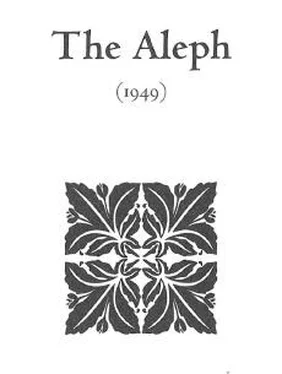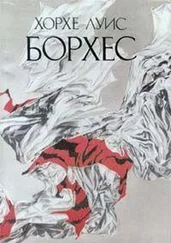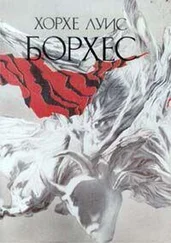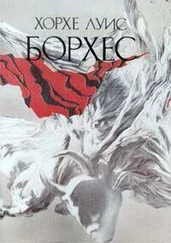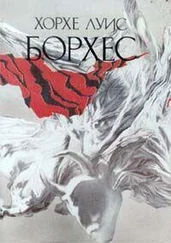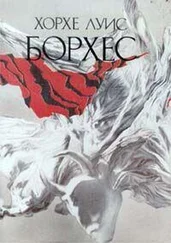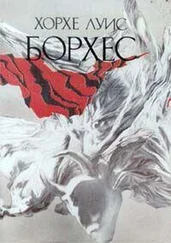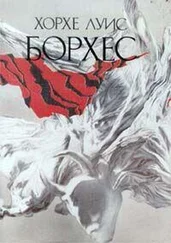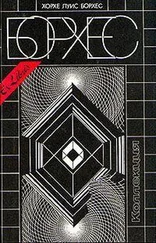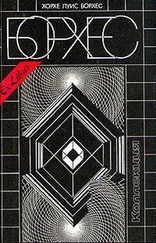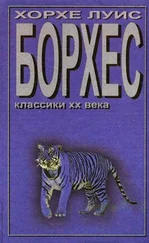Хорхе Борхес - Collected Fictions
Здесь есть возможность читать онлайн «Хорхе Борхес - Collected Fictions» весь текст электронной книги совершенно бесплатно (целиком полную версию без сокращений). В некоторых случаях можно слушать аудио, скачать через торрент в формате fb2 и присутствует краткое содержание. Год выпуска: 1999, ISBN: 1999, Издательство: Penguin (UK), Жанр: Старинная литература, на английском языке. Описание произведения, (предисловие) а так же отзывы посетителей доступны на портале библиотеки ЛибКат.
- Название:Collected Fictions
- Автор:
- Издательство:Penguin (UK)
- Жанр:
- Год:1999
- ISBN:9780140286809
- Рейтинг книги:5 / 5. Голосов: 1
-
Избранное:Добавить в избранное
- Отзывы:
-
Ваша оценка:
- 100
- 1
- 2
- 3
- 4
- 5
Collected Fictions: краткое содержание, описание и аннотация
Предлагаем к чтению аннотацию, описание, краткое содержание или предисловие (зависит от того, что написал сам автор книги «Collected Fictions»). Если вы не нашли необходимую информацию о книге — напишите в комментариях, мы постараемся отыскать её.
Collected Fictions — читать онлайн бесплатно полную книгу (весь текст) целиком
Ниже представлен текст книги, разбитый по страницам. Система сохранения места последней прочитанной страницы, позволяет с удобством читать онлайн бесплатно книгу «Collected Fictions», без необходимости каждый раз заново искать на чём Вы остановились. Поставьте закладку, и сможете в любой момент перейти на страницу, на которой закончили чтение.
Интервал:
Закладка:
An unsettling coincidence made me a witness to the second intrusion as well. This event took place some months later, in a sort of a country general-store-and-bar owned by a Brazilian man in the Cuchilla Negra. Amorim* and I were returning from Sant'Anna. There was a freshet on the Tacuarembó; as there was no way to cross, we were forced to try (to try to endure, that is) the rudimentary hospitality at hand. The storekeeper set up some creaking cots for us in a large storeroom clumsy with barrels and stacks of leather. We lay down, but we were kept awake until almost dawn by the drunkenness of an unseen neighbor, who swung between indecipherable streams of abuse and loudly sung snatches of milongas —or snatches of the same milonga, actually. As one can imagine, we attributed the man's insistent carrying-on to the storekeeper's fiery rotgut.... By shortly after daybreak, the man was dead in the hallway. The hoarseness of his voice had misled us—he was a young man. In his delirium, several coins had slipped from his wide gaucho belt, as had a gleaming metal cone about a die's width in diameter. A little boy tried to pick the cone-shaped object up, but in vain; a full-grown man could hardly do it. I held it for a few minutes in the palm of my hand; I recall that its weight was unbearable, and that even after someone took it from me, the sensation of terrible heaviness endured. I also recall the neat circle it engraved in my flesh. That evidence of a very small yet extremely heavy object left an unpleasant aftertaste of fear and revulsion. A paisano suggested that we throw it in the swollen river. Amorim purchased it for a few pesos. No one knew anything about the dead man, except that "he came from the border." Those small, incredibly heavy cones (made of a metal not of this world) are an image of the deity in certain Tlönian religions.
Here I end the personal portion of my narration. The rest lies in every reader's memory (if not his hope or fear). Let it suffice to recall, or mention, the subsequent events, with a simple brevity of words which the general public's concave memory will enrich or expand:
In 1944, an investigator from The Nashville American unearthed the forty volumes of The First Encyclopaedia of Tlön in a Memphis library. To this day there is some disagreement as to whether that discovery was accidental or consented to and guided by the directors of the still-nebulous Orbis Tertius; the second supposition is entirely plausible. Some of the unbelievable features of Volume Eleven (the multiplication of hrönir, for example) have been eliminated or muted in the Memphis copy. It seems reasonable to suppose that the cuts obey the intent to set forth a world that is not too incompatible with the real world. The spread of Tlönian objects through various countries would complement that plan.... [6] At any rate, the international press made a great hue and cry about this "find." Hand-books, anthologies, surveys, "literal translations," authorized and pirated reprints of Mankind's Greatest Masterpiece filled the world, and still do. Al-most immediately, reality "caved in" at more than one point. The truth is, it wanted to cave in. Ten years ago, any symmetry, any system with an appearance of order—dialectical materialism, anti-Semitism, Nazism—could spellbind and hypnotize mankind. How could the world not fall under the sway of Tlön, how could it not yield to the vast and minutely detailed evidence of an ordered planet? It would be futile to reply that reality is also orderly. Perhaps it is, but orderly in accordance with divine laws (read: "inhuman laws") that we can never quite manage to penetrate. Tlön may well be a labyrinth, but it is a labyrinth forged by men, a labyrinth destined to be deciphered by men.
Contact with Tlön, the habit of Tlön, has disintegrated this world. Spellbound by Tlön's rigor, humanity has forgotten, and continues to forget, that it is the rigor of chess masters, not of angels. Already Tlön's (conjectural) "primitive language" has filtered into our schools; already the teaching of Tlön's harmonious history (filled with moving episodes) has obliterated the history that governed my own childhood; already a fictitious past has supplanted in men's memories that other past, of which we now know nothing certain—not even that it is false. Numismatics, pharmacology, and archaeology have been reformed. I understand that biology and mathematics are also awaiting their next avatar.... A scattered dynasty of recluses has changed the face of the earth—and their work continues. If my projections are correct, a hundred years from now someone will discover the hundred volumes of The Second Encyclopcedia of Tlön.
At that, French and English and mere Spanish will disappear from the earth. The world will be Tlön. That makes very little difference to me; through my quiet days in this hotel in Adrogué, I go on revising (though I never intend to publish) an indecisive translation in the style of Quevedo of Sir Thomas Browne's Urne Buriall.
[1] Haslam was also the author of A General History of Labyrinths
[2] Russell (The Analysis of Mind [1921], p. 159) posits that the world was created only moments ago, filled with human beings who "remember" an illusory past.
[3] A "century," in keeping with the duodecimal system in use on Tlön, is a period of 144 years.
[4] They claimed that the heresiarch was motivated by the blasphemous desire to attribute the divine category Being to a handful of mere coins, and that he sometimes denied plurality and sometimes did not. They argued: If equality entailed identity, one would have to admit that the nine coins were a single coin.
[5] Buckley was a freethinker, a fatalist, and a defender of slavery.
[6] There is still, of course, the problem of the material from which some objects are made.
The Approach to Al-Mu'tasim
Philip Guedalla writes that the novel The Approach to Al-Mu'tasim, by the Bombay attorney Mir Bahadur Ali, is "a rather uncomfortable amalgam of one of those Islamic allegorical poems that seldom fail to interest their translator and one of those detective novels that inevitably surpass John H. Watson's and perfect the horror of life in the most irreproachable rooming-houses of Brighton." Earlier, Mr. Cecil Roberts had detected in Bahadur's book "the dual, and implausible, influence of Wilkie Collins and the illustrious twelfth-century Persian poet Farïd al-dïn Attar"; the none-too-original Guedalla repeats this calm observation, though in choleric accents. In essence, the two critics concur: both point out the detective mechanism of the novel and both speak of its mystical undercurrents. That hybridity may inspire us to imagine some similarity to Chesterton; we shall soon discover that no such similarity exists.
The first edition of The Approach to Al-Mu'tasim appeared in Bombay in late 1932. Its paper was virtually newsprint; its cover announced to the buyer that this was "the first detective novel written by a native of Bombay City." Within months, readers had bought out four printings of a thousand copies each. The Bombay Quarterly Review, the Bombay Gazette, the Calcutta Review, the Hindustan Review of Allahabad, and the Calcutta English-man rained dithyrambs upon it. It was then that Bahadur published an illustrated edition he titled The Conversation with the Man Called Al-Mu'tasim and coyly subtitled A Game with Shifting Mirrors. That edition has just been reprinted in London by Victor Gollancz with a foreword by Dorothy L. Sayers, but with the (perhaps merciful) omission of the illustrations. I have that book before me; I have not been able to come upon the first, which I suspect is greatly superior. I am supported in this conclusion by an appendix that details the fundamental difference between the original, 1932, version and the edition of 1934. Before examining the work (and discussing it), I think it would be a good idea to give a brief general outline of the novel.
Читать дальшеИнтервал:
Закладка:
Похожие книги на «Collected Fictions»
Представляем Вашему вниманию похожие книги на «Collected Fictions» списком для выбора. Мы отобрали схожую по названию и смыслу литературу в надежде предоставить читателям больше вариантов отыскать новые, интересные, ещё непрочитанные произведения.
Обсуждение, отзывы о книге «Collected Fictions» и просто собственные мнения читателей. Оставьте ваши комментарии, напишите, что Вы думаете о произведении, его смысле или главных героях. Укажите что конкретно понравилось, а что нет, и почему Вы так считаете.
